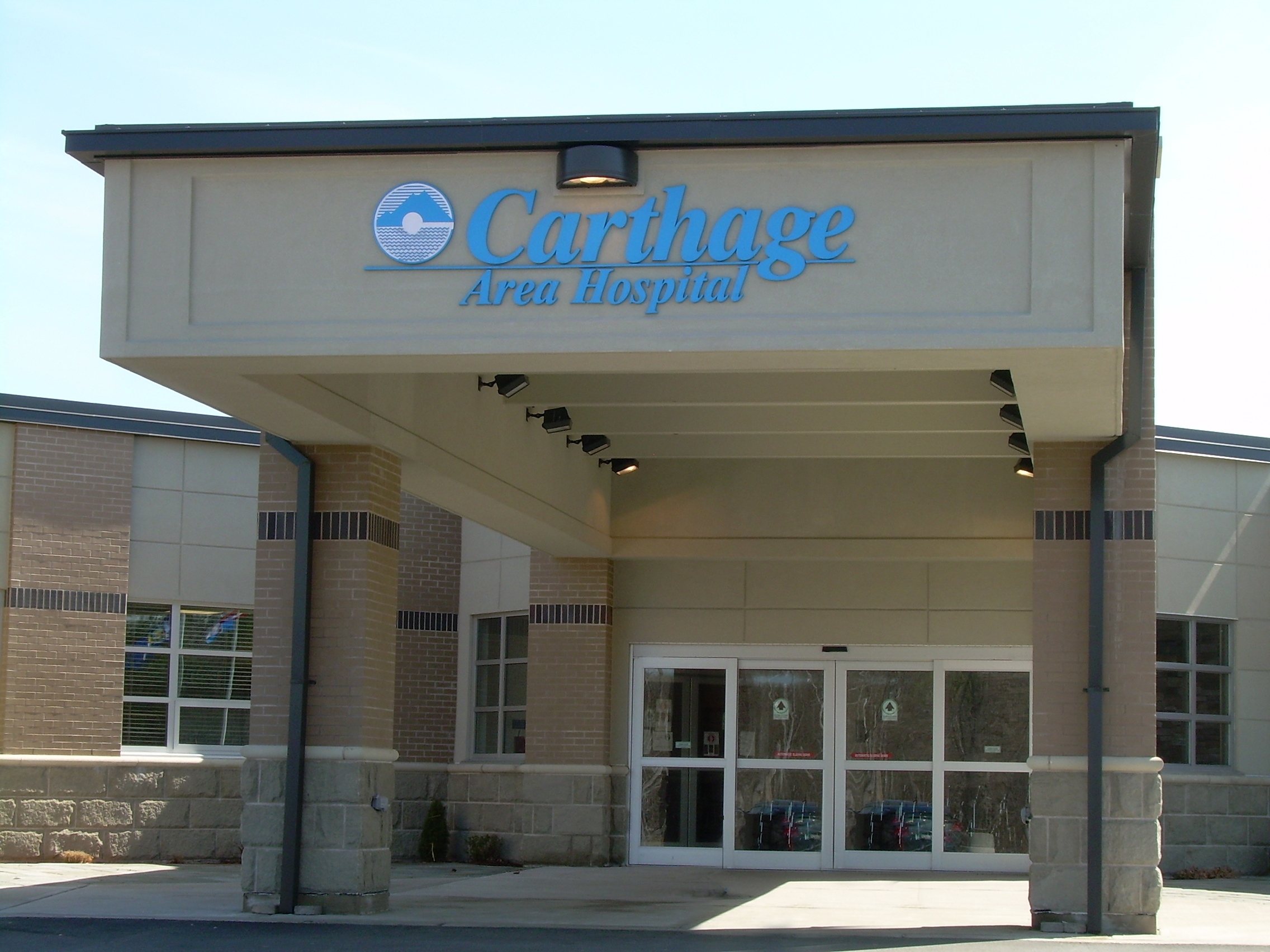Officials Seek State Funding to House All Carthage-Based Services on One Site
Story by Ken Eysaman
Carthage Area Hospital officials are considering a plan that would consolidate two of its outpatient clinic facilities, administration building and 53-year-old hospital onto a new medical campus.
The proposal, which seeks $25 million in funding from the New York State Department of Health’s Statewide Health Care Facility Transformation Program, calls for construction of a replacement hospital and attached rural health center. Hospital officials are evaluating the best possible site for the campus.
The plan follows an exhaustive review of present hospital facilities that began in 2016 at the request of the Board of Directors. Hospital leadership was initially charged with developing a five-year strategic plan to modernize the original West Street campus, which was built in 1962 and opened in 1965. The last major overhaul the hospital completed was in 2007 when a $9.2 million renovation opened a state-of-the-art surgical suite with four operating rooms and an eight-room boutique maternity unit. Older areas of the hospital have been updated since, but aging, inefficient infrastructure remains a challenge to maintain at the main campus.
Many major physical plant systems, such as electrical, HVAC, and water and sewer are either at or past end of effective use and need costly overhaul and attention. In addition, as the hospital has expanded services across the twin villages to operate in four different buildings, it has experienced inefficiencies that a consolidated medical campus would correct. A modern facility would employ highly efficient building design and technology that would improve patient care and flow.
While examining options to renovate the hospital, board members and leadership quickly realized that it wasn’t the most sustainable path to take. At $44 million, the cost of renovations, including service line disruption over a phased, 10-year timeline would jeopardize patient care and risk the loss of much-needed revenues to maintain operation, while new construction would cost $49 million.
“We had to consider the best way to create an environment that would meet the needs of our mission while ensuring a long-term future for the hospital in our community,” Carthage Area Hospital Chief Executive Officer Rich Duvall said. “When we weigh all the facts and costs of renovating versus new construction, the latter delivers the best return for our patients and region.”
The most convincing evidence, Duvall said, is substantiated in a 2016 presentation by Stroudwater Associates, hospital leadership heard during the National Rural Health Conference. It details the impressive results achieved by 172 new build critical access hospitals across the country. Carthage Hospital would be the first New York State Critical Access Hospital to follow this proven replacement model. Stroudwater, Portland, Maine, is the same consulting advisor the New York State Office of Rural health retains.
One challenge that hospital officials face while evaluating locations for a new campus is a newly defined, federally designated Metropolitan Statistical Area, which exists from Watertown to Carthage and Fort Drum.
The hospital is still awaiting news from the state Department of Health on its application for construction funding, which Duvall anticipates sometime in July. Meanwhile, the project is under review by the hospital board and conversations with local, regional and state leaders continue.
About Carthage Area Hospital
Carthage Area Hospital was established as a not-for-profit rural community hospital in 1965. It operates today as a fully accredited 25-bed Critical Access Hospital, serving approximately 83,000 residents in Jefferson, northern Lewis and southern St. Lawrence counties. The hospital formed a clinical affiliation with Crouse Health, Syracuse, in 2017.
The hospital also operates a network of community-based clinics, including its Philadelphia Medical Center, Family Health Center, Pediatric Clinic and Women’s Way to Wellness and provides a range of specialty care, including general surgery, orthopedics, podiatry, urology, neurosurgical care, physical and occupational therapy, and behavioral health.

